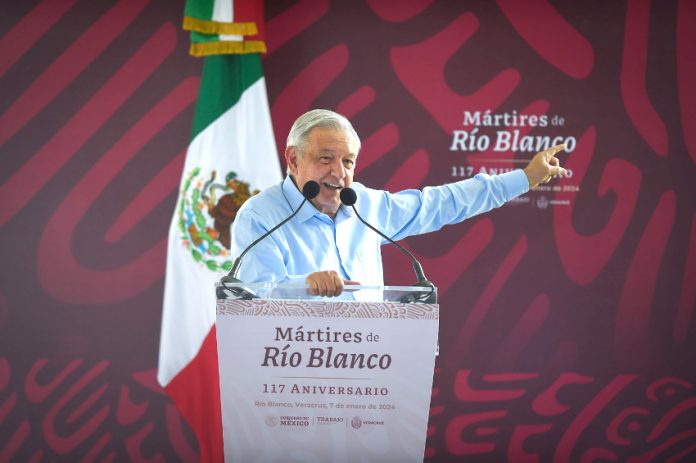President Andrés Manuel López Obrador pledged on Sunday to propose changes to the constitution that would ensure increases to the minimum wage outpace inflation and lift the pensions workers receive in retirement.
The commitments, made at an event in Río Blanco, Veracruz, to mark the 117th anniversary of a textile workers’ strike and riot, add to the president’s already ambitious agenda in 2024.
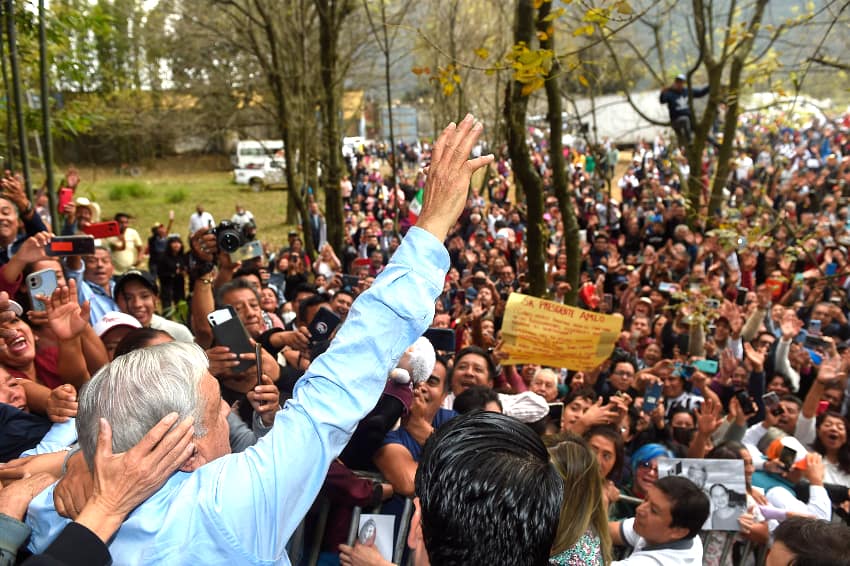
López Obrador, who has less than nine months left in office, has also said he will pursue other constitutional changes this year, including one that would allow Mexican citizens to directly elect Supreme Court justices and other high-ranking judges.
Proposed minimum wage reform
Before his six-year term concludes on Oct 1., AMLO pledged to send a proposal to Congress to change Article 123 of the constitution to ensure that annual increases to the minimum wage exceed the prevailing inflation rate.
Before making that commitment, López Obrador asserted that “there was a constant decline” in workers’ purchasing power between 1982 and 2018, a 36-year span of time he describes as Mexico’s “neoliberal or neo-Porfirian period.”
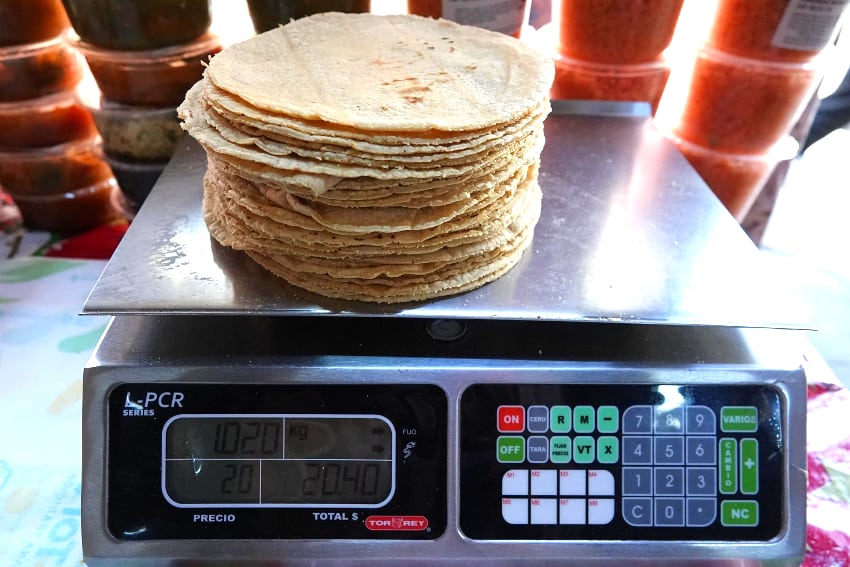
Increases to the minimum wage during that period were on many occasions lower than inflation in percentage terms, he said, adding that the cumulative loss in the “purchasing power of the minimum salary” was 70%.
In 1980, 50 kilograms of tortillas could be bought with the daily minimum wage, “but when we arrived to the presidency, the minimum wage was barely enough to buy five kilograms of tortillas,” López Obrador said.
“And even though we’ve increased the minimum salary by more than 100%, the [daily] minimum wage is barely enough to buy 10 kilograms of tortillas. Just look at how much the purchasing power of the [minimum] wage deteriorated,” he said.
The daily minimum wage has in fact increased 182% since López Obrador took office on Dec. 1, 2018.
It was 88.15 pesos (US $5.25 at today’s exchange rate) in 2018, and is now 248.93 pesos (US$14.82) in most of the country after a 20% increase took effect Jan. 1.
The highest headline inflation rate during López Obrador’s presidency was 8.7% in August and September 2022.
Proposed pension reform
AMLO also pledged to propose a change to the constitution that would increase workers’ pensions in retirement.
“We’re going to review the labor counter-reform of [former president Ernesto] Zedillo, the one on pensions,” he said.
López Obrador said that “the teachers’ union and other workers” had suggested changing Mexico’s pension system to him.
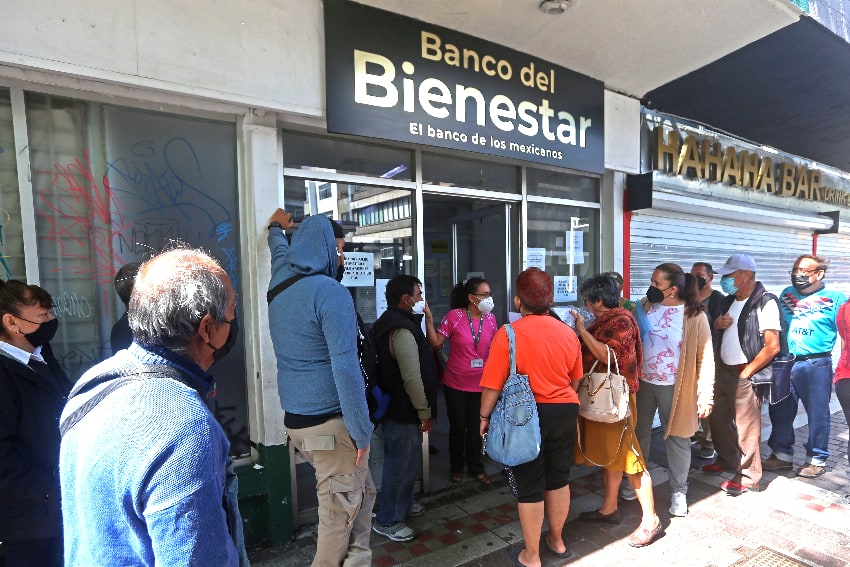
It is “completely inhumane” and “unfair” for a person — after working for 30 years — to receive a pension that, at best, is equivalent to just half of what they earned when they were still in their job, he said.
However, that’s the way things are as a result of the pensions reform carried out by the 1994-2000 Zedillo government, AMLO said.
“That will no longer be the case – I’m also going to send a reform to that anti-worker legislation, that legislation that is contrary to the interests of workers,” he said.
“… To hell with neoliberalism, to hell with neo-Porfirianism,” AMLO said during an animated address.
Ensuring that increases to the minimum wage outpace inflation and lifting pensions “are the two commitments I’m making here in Río Blanco in memory of the martyrs, of those who fought for better salaries and better working conditions,” López Obrador said.
The uprising in Río Blanco, a town in Veracruz near Orizaba, occurred during the presidency of Porfirio Díaz. The Mexican Revolution — a broader fight against Díaz’s long-running rule — commenced just under four years later in November 1910.
Getting the proposals through Congress
As the proposed reforms seek to change the constitution, they must be approved by two-thirds of lawmakers in both houses of Congress to become law.
The ruling Morena party and its allies don’t currently have a supermajority in either the Chamber of Deputies or the Senate. However, that could change after the June 2 elections, at which Mexicans will not just vote for a new president but also renew both houses of Congress.
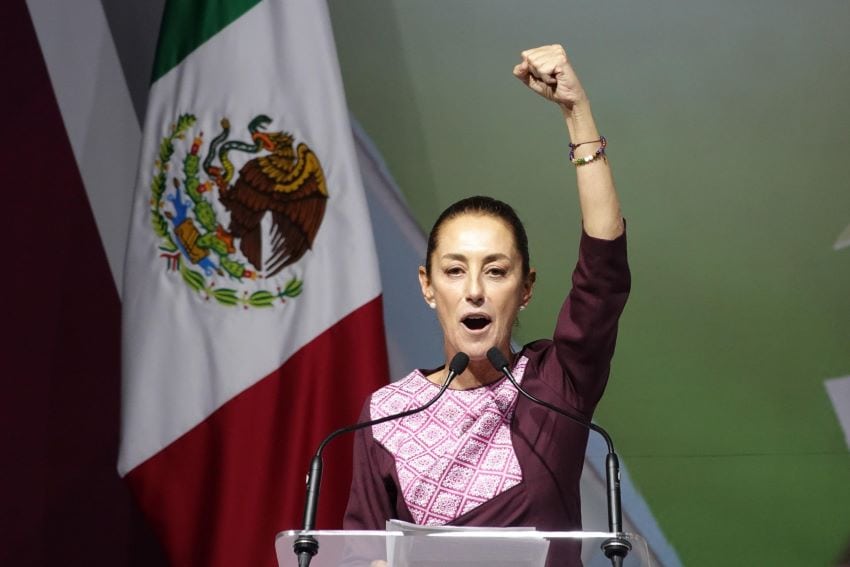
The newly-elected lawmakers will take their seats on Sept. 1, and thus López Obrador will possibly have a one-month window of opportunity to win approval for his proposed constitutional reforms from a Congress that sympathetic to his agenda.
He has already called for citizens to support Morena not just in the presidential election — at which Claudia Sheinbaum will represent the ruling party — but in the congressional ones as well.
“You have to vote not just for the [Morena] candidate for president, you have to vote for the lawmakers, the candidates for deputies and senators, so that the transformation has a qualified majority,” AMLO said last May.
Reaction to the pensions proposal
Two experts who spoke to the El Financiero newspaper raised concerns about López Obrador’s plan to increase pensions.
Víctor Gómez Ayala, head of analytics at the Mexican Institute for Competitiveness, said that increasing pensions for state workers would force the government to cut spending in other areas.
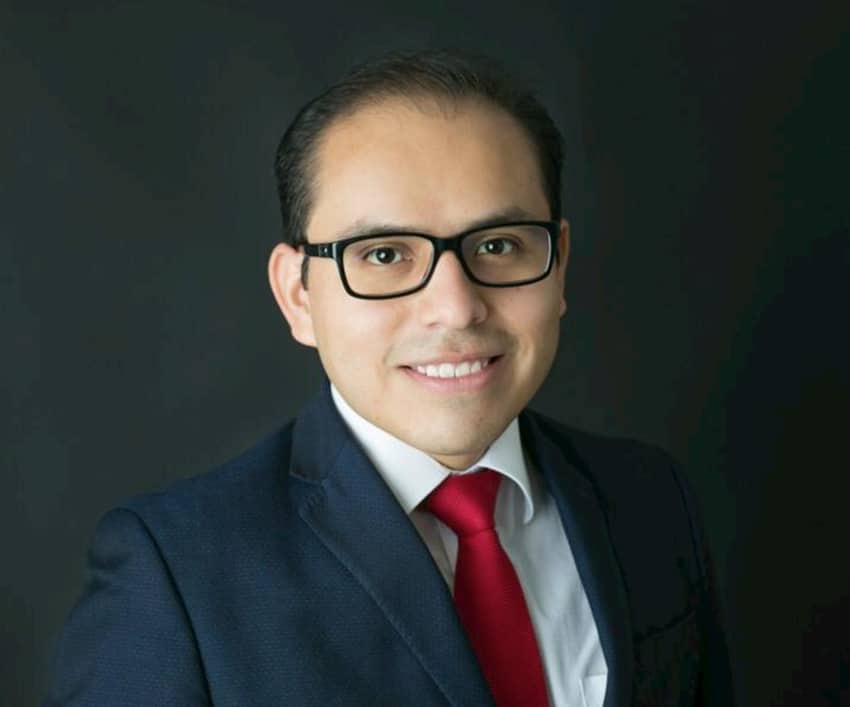
There would be less money for spending on infrastructure, on social programs, to repay debt and to meet other government expenditure requirements, said the Mexico City-based think tank analyst.
Rolando Silva Briceño, a vice president of the Mexican Institute of Public Accountants, said that paying pensions to retired workers that are equivalent to 100% of their former salaries is “practically impossible.”
Retired workers in highly developed countries such as Norway and Denmark don’t even receive pensions equivalent to their former salaries, he said, adding that in a best case scenario they get 70% of their working wages.
The current government has already made a major change to the pension system
In July 2020, López Obrador presented a plan to reform Mexico’s pension system by gradually increasing – over a period of several years – the contributions that must be paid by both workers and employers.
Arturo Herrera, finance minister at the time, said that workers’ pensions in retirement would, in time, increase by an average of 40%.
Carlos Salazar Lomelín, president of the Business Coordinating Council, an umbrella organization representing 12 business groups, said that the plan was a “historic achievement for Mexico” and “truly momentous.”
The Congress approved López Obrador’s plan in December 2020.
The Organization for Economic Co-operation and Development (OECD) said in 2021 that Mexican had “implemented the most comprehensive reform among OECD countries, raising earnings-related contributions, as well as current and future first-tier benefits and increasing the guaranteed pension (minimum pension).”
“The increases in first-tier benefits, and making it universal from age 65, will boost income for all retirees and increase pension spending from a currently very low level compared to other OECD countries,” the Paris-based organization said.
With reports from El Financiero
